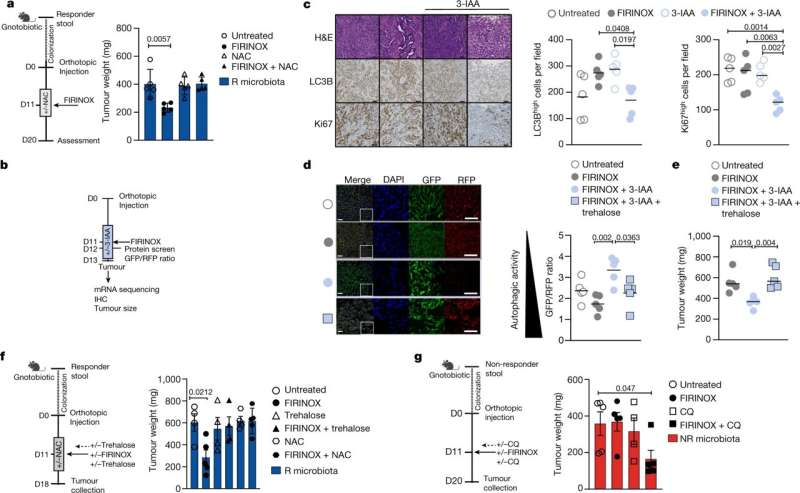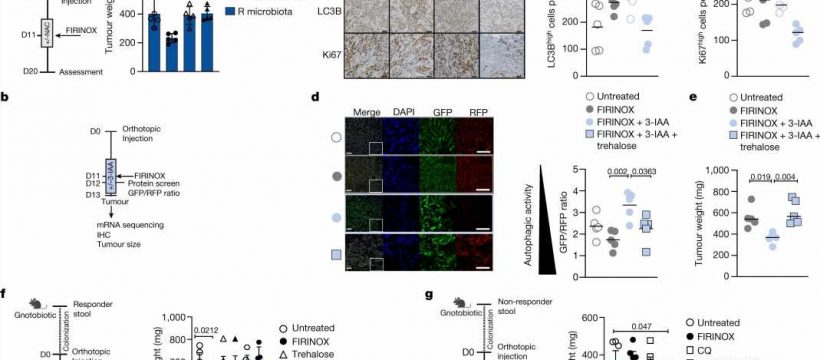
A large team of cancer researchers affiliated with multiple institutions in Germany, working with a colleague from the U.S., has discovered some of the ways gut bacteria can positively impact treatments for cancer. In their study, published in the journal Nature, the group studied the impact of gut microbiota on chemotherapy given to patients with pancreatic ductal adenocarcinoma. Le Li and Florencia McAllister with the University of Texas MD Anderson Cancer Center, have published a News and Views piece in the same journal issue, outlining the work done by the team in Germany.
Prior research has shown that chemotherapy for pancreatic cancer that has metastasized sometimes works well but is sometimes ineffective, and this difference may be tied to dietary resistance, though its source is not known. In this new study, the team in Germany looked at the possibility that certain microorganisms in the gut microbiome play a role in the process.
The team began their work by looking at samples of the gut microbiome of pancreatic cancer patients and found differences between those responding to treatment and those who were not. They also found that mice with sterilized guts who received biome samples from mice responding to chemotherapy also responded well.
To better understand how the gut microbiome might play a role in chemotherapy effectiveness, the researchers collected blood samples from patients who were responding well and from those who were not. They found higher levels of the molecule 3-IAA in better responding patients. Further investigation showed that the molecules were produced by two strains of gut bacteria. The team then tried adding 3-IAA directly to food eaten by cancerous mouse models and found that they became more responsive to chemotherapy treatment, as well.
The research team noted that 3-IAA is produced in the gut when amino acids interact with tryptophan, an acid found in many types of food. Subsequent testing with cancerous mouse models revealed that raising amounts of food with the acid might help with chemotherapy.
While exploring why higher levels of 3-IAA help chemotherapy to work better, the team found that their presence led to modulating neutrophils, which are types of immune cells. The overall takeaway was that microbes in the gut can help fight cancer by sending chemicals through the bloodstream to remote tumors where they give chemotherapy chemicals a boost by inciting the immune system into action.
More information:
Joseph Tintelnot et al, Microbiota-derived 3-IAA influences chemotherapy efficacy in pancreatic cancer, Nature (2023). DOI: 10.1038/s41586-023-05728-y
Le Li et al, A gut reaction can tune tumour fate during chemotherapy, Nature (2023). DOI: 10.1038/d41586-023-00476-5
Journal information:
Nature
Source: Read Full Article
